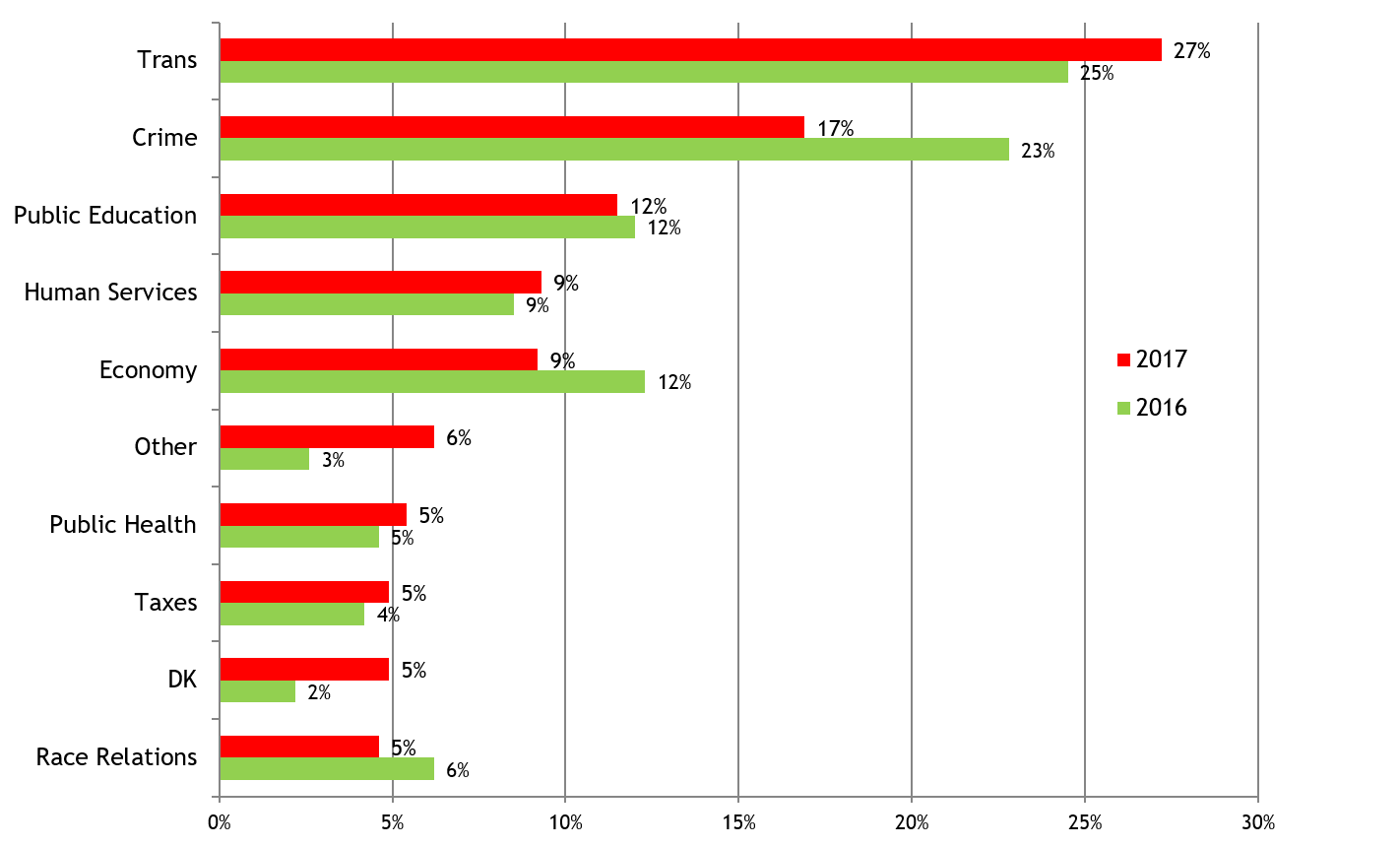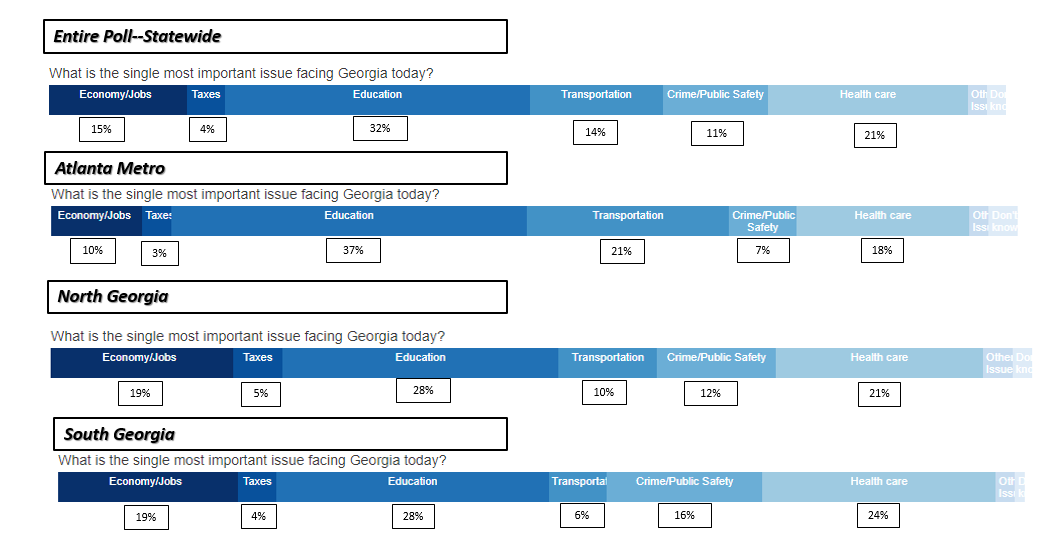Polls have certainly gotten a great deal of attention lately, for better or worse! Despite some of their shortcomings, polls can tell us some very interesting things, particularly when we are able to see enough difference in answers to eliminate the poll’s necessary margin of error as a major concern for interpreting results. Things get even more interesting when two polls, albeit two done at different times with different samples, ask similar questions. This happy phenomenon–well, it made us happy– came to pass this month. The Atlanta Journal published a statewide poll that, like the regional Metro Atlanta Speaks (MAS) survey for five years running now, asked respondents to name, out of a host of choices, the biggest problem facing their sampled area.
First, the ARC started the MAS public opinion survey in 2013 to take the pulse of metro Atlanta residents and help guide the region’s planning and decision-making. The survey offers a snapshot of residents’ views on a range of critical issues, such as transportation, the economy, education, aging and neighborhood quality of life–and is statistically significant to plus or minus 1.7 percentage points at the scale of the region. The 2017 edition of MAS surveyed 5,400 persons across a 13-county region–and of the 25+ questions asked each year, the one that has always gotten the most traction is: What’s the biggest problem for the Atlanta region? Chart 1 shows the answers from MAS 2017 and 2016. Across the 13-county area surveyed, the highest share of respondents (27%) felt that the biggest problem for that 13-county area was transportation; this is up from 25% of respondents in 2016. Crime came in second at 17%, but this is down substantially from 23% in 2016. Public education was third at 12%, followed by “the economy” and “human services” at 9%. One thing to note is that, back in 2013, the economy was the #1 highest rated problem–at 24% of respondents.
Chart 1: Metro Atlanta Speaks: Biggest Problem for Regional Respondents: 2017 and 2016

Source: Metro Atlanta Speaks Surveys conducted by A.L. Burruss Institute, Kennesaw State University; for more information, click here
The Atlanta Journal poll of January 2018 (AJC poll) offers a look at responses from a statewide sample of 940 registered voters. Within this smaller (compared to MAS) and broader sample, the poll splits results into three “subareas”: the Atlanta Metro; North Georgia, and South Georgia. The poll asks about a gamut of issues, ranging all the way from nuclear reactors to marijuana. But of those 20+ questions, the AJC poll also– like MAS– asks respondents: What’s the biggest problem statewide?
Figure 1 is derived from some queries run on a great viewing tool available here. Across the 159 counties in Georgia–the highest share of respondents (32%) felt that the biggest problem statewide was education, followed by healthcare at 21%, and the economy at 15%. Transportation shows up in fourth, at 14% with crime just below that at 11%. Looking at the results for just Atlanta metro respondents–education gets an even higher share than it does statewide, at 37%. Transportation jumps all the way from fourth (in the statewide rankings at 14%) to second for Atlanta area respondents (at 21%). Healthcare follows at 18%, and the economy logs only 1o% in fourth place. Crime was the biggest problem for only 7% of respondents in the Atlanta area. For North Georgia and South Georgia, “the story” is different–education is the biggest problem still, but captures a lesser share (28%) than it does for Atlanta residents (37%). Healthcare is second, with 24% in South Georgia and 21% in North Georgia. The economy is third, with 19% in both arweas, compared to 10% in Atlanta. Transportation is seen as much less important than in Atlanta —chosen as the biggest statewide problem by 10% in North Georgia and by only 6% in South Georgia.
Figure 1: Atlanta Journal Poll of Georgia Voters: Biggest Problem by Area, January 2018

Notes: Poll surveyed 940 registered voters in Georgia; administered by the School of Public and International Affairs Survey Research Center at the University of Georgia; margin of error for the total sample is 3.2 percentage points. For more information, click here

